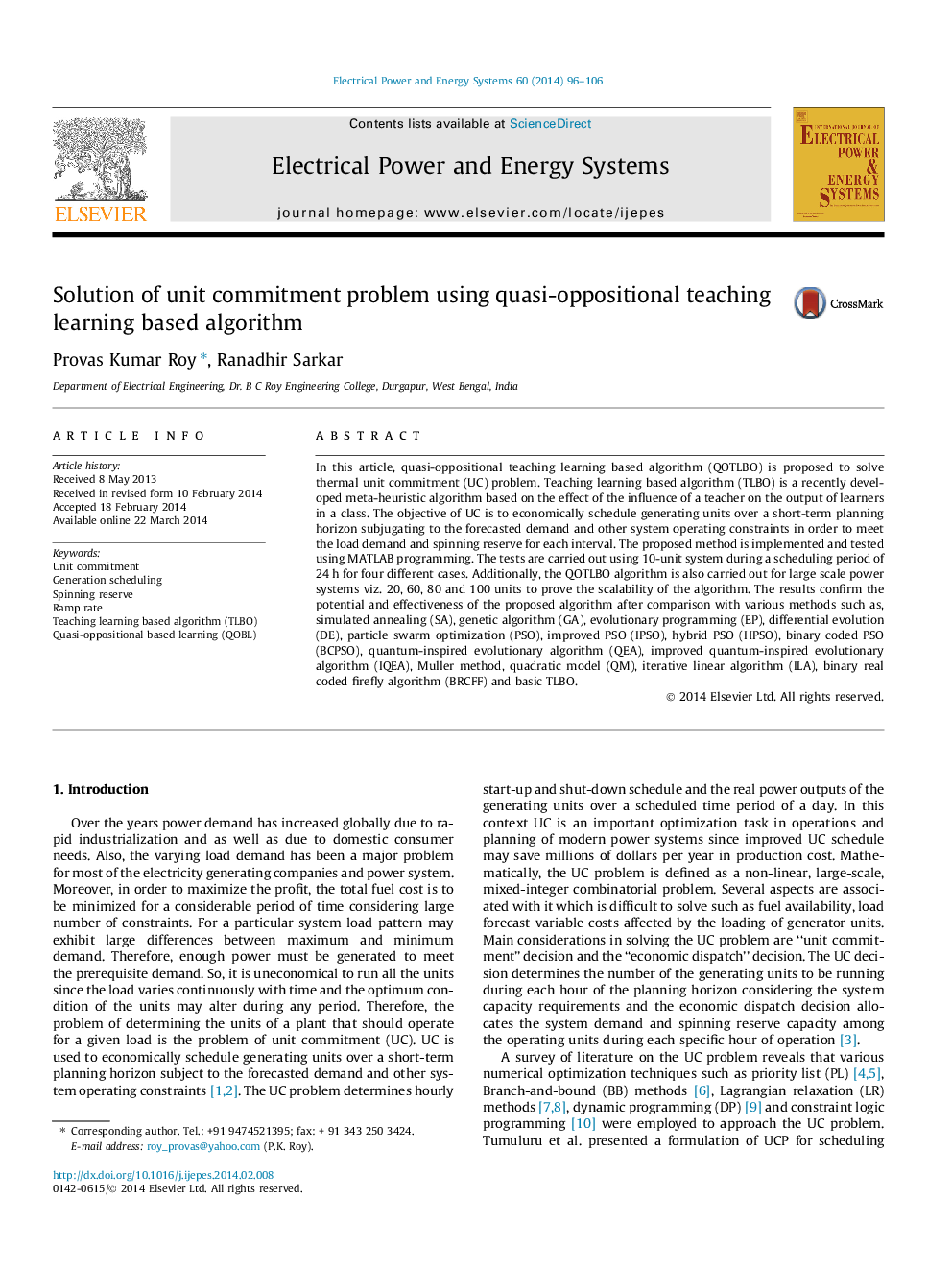| Article ID | Journal | Published Year | Pages | File Type |
|---|---|---|---|---|
| 399709 | International Journal of Electrical Power & Energy Systems | 2014 | 11 Pages |
•This paper presents QOTLBO based algorithm to solve UC problems.•Presents quasi oppositional based learning strategy to improve TLBO algorithm.•Valve-point effects, ramp rate, spinning reserve and up/down time constraints are considered.•The robustness of the QOTLBO is demonstrated in five standard UC problems.•Performance of QOTLBO is found to be better than other techniques.
In this article, quasi-oppositional teaching learning based algorithm (QOTLBO) is proposed to solve thermal unit commitment (UC) problem. Teaching learning based algorithm (TLBO) is a recently developed meta-heuristic algorithm based on the effect of the influence of a teacher on the output of learners in a class. The objective of UC is to economically schedule generating units over a short-term planning horizon subjugating to the forecasted demand and other system operating constraints in order to meet the load demand and spinning reserve for each interval. The proposed method is implemented and tested using MATLAB programming. The tests are carried out using 10-unit system during a scheduling period of 24 h for four different cases. Additionally, the QOTLBO algorithm is also carried out for large scale power systems viz. 20, 60, 80 and 100 units to prove the scalability of the algorithm. The results confirm the potential and effectiveness of the proposed algorithm after comparison with various methods such as, simulated annealing (SA), genetic algorithm (GA), evolutionary programming (EP), differential evolution (DE), particle swarm optimization (PSO), improved PSO (IPSO), hybrid PSO (HPSO), binary coded PSO (BCPSO), quantum-inspired evolutionary algorithm (QEA), improved quantum-inspired evolutionary algorithm (IQEA), Muller method, quadratic model (QM), iterative linear algorithm (ILA), binary real coded firefly algorithm (BRCFF) and basic TLBO.
